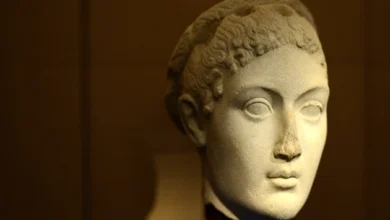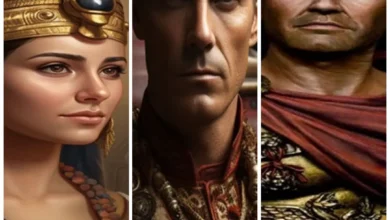In Africa, the festival of Tabaski is marked by the crisis

Many African countries celebrate Tuesday, August 21, the Muslim festival of Tabaski.
But in some countries, such as Mali, Chad and Congo-Brazzaville, the celebrations and their preparations are being hindered by suffering of this year from the crisis.
In Egypt, it is marked by the new ban on slaughtering sheep in the streets, a tradition in Cairo.
Mali: rarer and more expensive sheep in Bamako
In Bamako, animals, shepherds and sacks of grass for cattle feed have invaded the streets and boulevards. On Monday, the last buyers rushed to acquire their Tabaski sheep. Benefits for some but especially expenses for others, the sheep are fewer and more expensive than last year.
Given the current situation, wages are low and those who do business are struggling to sell on the market.
Chad: a gloomy mood in the Karkandjier market
In the heart of N’Djamena, at the market of Karkandjier, the atmosphere is not yet at the party. The populations are less numerous to go to look for their animals compared to the previous years. The economic crisis that has hit the country since the fall in oil prices has reduced the family budget for the festivities.
I only sold thirty sheep. At midday last year, I had sold at least a hundred animals. Customers do not have money. They negotiate prices a lot. Traders have trouble selling their sheep in N’Djamena
Congo-Brazzaville: the crisis affects the sheep trade
The crisis in this country of just over 800,000 Muslims also affects the festivities of Tabaski. Sellers say they have lowered the price of sheep while buyers find it rather exorbitant.
The prices are down, the sheep is cheaper compared to last year because of the crisis. There are some that cost 90,000 CFA francs; then there is the bulk from 110 000 and 120 000 CFA francs. It depends only on the capacity.
Burkina Faso: a difficult year for fashion designers in Ouagadougou
Unlike the last years, the dressmakers of the Burkinabe capital say they have no good business. Certainly, customers come but they struggle to pay for the making of their outfits.
This year, it’s a little hard because there are many people who complain about the means. When you give them the price, they complain and ask me to reduce it, so that really, me too, it penalizes me a little. Fashion designers are busy with little success in Ouagadougou
Ivory Coast: embroidery, retouching and finishing in Treichville
In the area of couturiers and borderers in Treichville, municipality of Abidjan, in Ivory Coast, every year, at the time of Tabaski, the Moslems of the country rush to buy the sheep and also to sew the most beautiful outfit for this great Muslim holiday.
For Tabaski, we have a lot of work. The bazins, the lace, the loincloths. When I look at the person, I already know what kind of model can go with the person.
Senegal: a party that comes online and by phone
For believers, Tabaski is an opportunity to meet up with family and exchange directly. But also, via phones and social networks.
At the beginning of the day, social networks are full of photos. We show his new clothes, his sheep. You have to be on the page. Hashtags are created on Twitter…
Happy New Year, prayers, wishes for success flood networks and couriers
Mauritania: leaving the capital to end up as a family
This year as in the past, Nouakchott is empty of a large part of its inhabitants who prefer to celebrate with family, inside the country. For three days, the bus stations have been stormed. Nobody wants to miss the family reunion.
It’s a big day for Muslims. On this day, we are spending a lot of money to meet the demands of sacrifice. There, I leave my work in Nouakchott to share the event with my family and my home village.
Family reunion in perspective for Mauritanians
From RFI radio Correspondents




